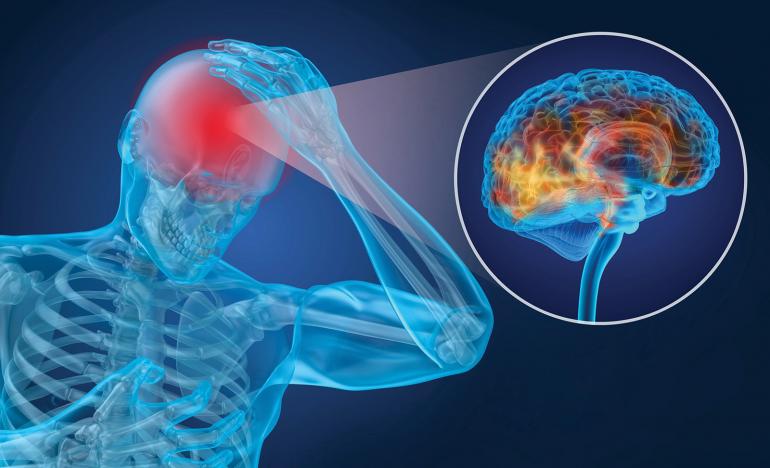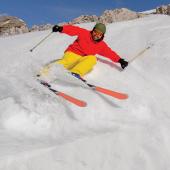Concussion Comeback
Navigating through the fog of head injuries.
It’s one of those fall afternoons that eclipses everything—no work emails, no Huffine 500… just peak season aspens and warm sun softening the crisp alpine air. The stars aligned with your adventure buddy’s schedule, and the ride you dreamed of all summer is finally manifesting. Well into the descent, a flash of fur breaks through the trees. Is it a bear? No, just a muley. With your focus elsewhere, you fail to notice the log protruding into the trail. Without warning, you’re sent flying into the dirt. When you come to, your partner is standing over you, shouting your name. The next three hours are a blur—regaining your bearings, slowly hiking out, and riding to the ER. Bad news: you’re concussed. You leave the hospital with a folder of discharge papers, and one question on your mind: What now?
Taking care of your body helps brain recovery. Focus on eating well, hydrating, getting quality sleep, and managing your stress.
Whether your concussion came from a mountain-biking wreck, a whipper just before clipping into the next quickdraw, or something as unspectacular as slipping off a raft with a round of drinks in hand (been there), there’s seldom a clear map for navigating the aftermath. Rather than treading an established trail, understanding concussions can feel more like bushwacking. Luckily, recovery doesn’t have to be a solo mission. Here are a few common myths to explore, as well as some tools and resources to navigate the road to recovery.
Let’s Clear a Few Things Up
Your helmet isn’t a license to go bigger than your personal limits.
While helmets are great for preventing skull fractures, they’re not great at shielding your Jello-like brain from sudden acceleration-deceleration collisions against its bony casing. Best practice? Recreate within your limits. Although neck-strengthening can help reduce whiplash, it’s not a surefire preventative measure.
Total rest in a dark room for weeks after injury is as outdated as empty trailhead parking lots.
After taking it easy for a day or two, a gradual return to moving your body and re-engaging in life activities—without overdoing it early on—is ideal.
Total screen avoidance is overkill.
While long screen sessions right after injury may worsen symptoms, there’s no need to swear off screens completely. Like other parts of recovery, brief, repeated exposures to symptom triggers can help your brain get back on track.
Cairns for Navigating Recovery
Cut your brain some slack.
After a concussion, we may hyperfocus on normal brain lapses, potentially worsening them. It’s like when you fixate on the rock in the river you’re trying to avoid—and end up steering straight into it. Instead, use a synonym or describe the word you can’t find and move on. Jot things down or use a reminding app for support, and scale back when you no longer need them.
Recovery isn’t linear.
You’ll have good and bad days; that doesn’t mean you’re doing it wrong. Strike a balance between gently pushing your brain and giving it rest to allocate resources to healing. It’s okay to unhook from our self-reliant culture while recovering and accept support from others.
Take it easy on the IPAs.
Taking care of your body helps brain recovery. Focus on eating well, hydrating, getting quality sleep, and managing your stress. Alcohol and other substances may trigger or prolong symptoms, so it’s best to pause while healing.
Red Flags
Seek emergency care if your symptoms significantly worsen; e.g., if you experience severe headaches, seizures, repeated vomiting, or changes in speech, vision, or movement.
Additional Resources & Guidance
Most people recover in 2-4 weeks. If things aren’t improving, call your physician or visit Urgent Care. Physical therapists can address persistent headaches, neck pain, and dizziness. Speech pathologists specializing in neurologic disorders can help with persistent cognitive symptoms. Finally, remember that this information is not intended as a replacement for professional medical advice regarding your situation.
Audra Yetter, M.S., is a speech-language pathologist, board-certified in neurogenic communication disorders. She provides rehabilitation services at True North Neuro.












